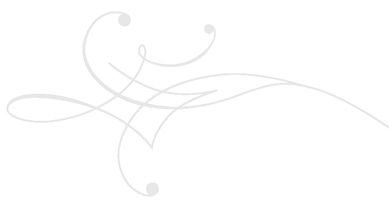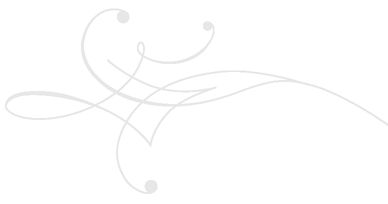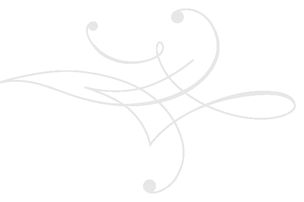Affection (30 page)
Authors: Krissy Kneen
I was sitting in a doorway drinking scotch from a paper bag. It was raining. My skirt smelled old and damp. The pages of my notebook would be curling. My beetling words inside the notebook would be bleeding onto the page. There was a night ahead of me and another day and another night and more again and the idea of it exhausted me.
“I've got to find a place,” I said the words out loud. I found that I did that a lot. The lack of communication had somehow changed my relationship to speech. Sometimes a word would slip out of my mouth.
Sometimes a whole sentence. Sometimes I caught myself in the middle of an entire conversation, questions and answers, a heated sparring with myself.
Sometimes a whole sentence. Sometimes I caught myself in the middle of an entire conversation, questions and answers, a heated sparring with myself.
“I'm going mad,” I told myself, tucking my shoes up a step and out of the back spray of rain. “I am talking to myself,” I said to myself. “And I have to get out of the rain.”
THE DEPARTMENT OF SOCIAL SECURITY

There is a bleakness common to all government buildings. The mood-affecting color schemes; posters, a repetition of warnings we will read but not heed. I stared at an antismoking poster and considered ducking outside for a cigarette. A safe-sex poster and I thought about unprotected sex. Alcohol, violence. I had been waiting for over an hour and a grim cocktail was percolating inside me. The music didn't help. It was tragic radio. Not the kind of radio I would choose to listen to, but the fug of sound that is chosen for its inability to offend. I was, of course, offended by the gray carpet of music, not to mention the actual gray carpet which seemed to have cigarette burns in it despite the no-smoking signs. I still felt like a cigarette. I glanced at a poster for domestic violence and wondered if I would kill for one.
When they called my name I was twitchy as a junky. I had knotted
the end of my skirt and it dragged high against my calf. There were little balls of paper, torn corners from a magazine, a little pyramid of them piled next to my chair. I didn't remember doing this, but I recognized the architecture constructed by my own restless fingers. My calling card, this miniature nest like something a bowerbird might construct.
the end of my skirt and it dragged high against my calf. There were little balls of paper, torn corners from a magazine, a little pyramid of them piled next to my chair. I didn't remember doing this, but I recognized the architecture constructed by my own restless fingers. My calling card, this miniature nest like something a bowerbird might construct.
I gathered my things. Papers, pens, my satchel. Things fell from my bag that I didn't know I had, seedpods, cigarette papersâa brand I'd never heard of. I felt I had been sleepwalking, gleaning the detritus of the world without consciousness.
When I had collected the various bits and pieces of my life I scurried toward the counter. The man, boy, he was no more than a boy, looked at me. I saw him sniff. I wondered if my clothes had started to smell like a homeless person; that nasty mix of scalp and urine and cigarette smoke that we draw away from when we encounter it on public transport.
I had not spoken for many days. When he asked if he could help me his words were loud and pointed. Could he help me? I wondered if he could. I wondered if it would be possible to help me. This seemed suddenly like so huge a question I could barely find a sentence to begin the interaction.
“I have no money.”
I swayed back in my chair, overwhelmed by the initiation of what must inevitably become a conversation.
“You're unemployed?”
I nodded. He was waiting for more and so I dragged myself forward in my chair. “I lost my job,” I told him and he nodded, making notes.
“When did you become unemployed? ”
I counted back. Not so long ago but it seemed like a lifetime.
“Maybe three months ago.”
“Savings?”
I shook my head.
“Address?”
I shook my head.
“You don't have an address? Where have you been living?”
I shrugged and leaned back in the hard plastic chair, “Nowhere in particular.”
Such a complicated conversation. I was exhausted by it. Behind me there was a woman with a child that had begun to wind up into that terrible shrieking only children can manage. Outside men with tattoos on their necks dragged frantically on cigarettes clutched in the shelter of their fists. Military-style smoking; or prison. A man in the corner of the room was rocking ever so slightly backwards and forwards. His lips twitched to a barely contained inner monologue.
“Are you homeless?”
I looked back toward the boy and he seemed suddenly concerned. Was I homeless? I had no place to be in particular, but what does that mean exactly?
“Maybe. I suppose so.”
“Where have you been sleeping? ”
I thought about the crawl space behind the bushes in Albert Park. I thought about Laura's empty house, while she was at work, her leather couch and the little stretch of grass at the side of her pool. I thought about the place at Highgate Hill where you could see the whole world. If you lay there for long enough little purple flowers puddled in your clothing. I felt like I should tell him all of this, because the bare truth of it sounded harsh. I scuffed my Docs against the threadbare gray carpet.
“In a park mostly,” I told him and it sounded melodramatic. Homeless girl, living in a park. I wanted to tell him that I had no money but never drank instant coffee. I wanted to explain about my afternoons in the cinema with the free choc-tops and the free broken quiches from Aromas. I wanted to point to the man who had stopped rocking and who was standing now, his lips forming silent words. In the scheme of things, I wanted to say, I was coddled.
He pressed a form into my hand.
“Fill in as much of this as you can and bring it straight back to the counter,” he told me. I took his form and the pen he handed to me and I stood without explaining myself at all.
I read the questions. Name, date of birth, address. I needed a cigarette. I held the pen in my fist, struggled to remember the correct spelling of my name.
I needed a cigarette and sex and alcohol. I needed to be somewhere
where there was sun and wind and little purple flowers. I needed to be somewhere where the tears that had begun to obscure my vision could fall neatly into the dirt and grass where they would be gone and no one would see them.
where there was sun and wind and little purple flowers. I needed to be somewhere where the tears that had begun to obscure my vision could fall neatly into the dirt and grass where they would be gone and no one would see them.
Name. Krissy Kneen. Kris, really, but everyone called me Krissy, and Kneen was not the name I was born with but it was my grandfather's name and that was fine. I could choose to use my father's name instead, or my grandmother's because it was my grandmother I longed for when I had a headache or when I was lonely. My grandmother who would say, “There is no try, only do or do not do,” like some ancient Eastern European Yoda figure. My grandmother who would say, “Don't be silly, you are not homeless at all. You are in between your houses,” as if I would rummage and find a key in the bottom of my bag along with the stones and seeds and poetry-laden scraps of paper.
What is the current balance of your bank account? “You are not broke,” my grandmother's voice told me. She was in my head. She watched through my eyes as I wrote $4.00 and she was shaking her head. “Not broke, fashionably fancy free.”
Broke. I answered her back and I should never answer her back. She would never tolerate this kind of disrespect. Broke and homeless and in need of some assistance. Some help. I tipped my head forward so that the tears bypassed my cheeks and fell neatly onto the page. When my eyes were dry I saw the saltwater had smudged the form.
My last name could be Kneen or Knoon; even Know. I blotted the page with my sleeve and blew on it till it was dry. I carefully filled in the double “e.” Kneen. Kris Kneen. I brushed the surface of the page clean and continued to fill in the form.
My last name could be Kneen or Knoon; even Know. I blotted the page with my sleeve and blew on it till it was dry. I carefully filled in the double “e.” Kneen. Kris Kneen. I brushed the surface of the page clean and continued to fill in the form.
CHAPTER FORTY
Brisbane 2008

Beauty is all about symmetry, they say. Some perfect form of balance. My own eye seems to slide off the things that others consider beautiful. Symmetry does not capture my attention; I am more drawn to the person who feels misplaced. The loners, the overlooked, the undervalued. I like my houses tumbledown and my bookshelves a patchwork of spines at a lean.
Perhaps it should be no surprise to me, then, that I woke up this morning and found that I was beautiful. Not pretty. Not like the girls who turn heads and who earn free cocktails just by bestowing their symmetry on others. Not like Jessica or even Laura or Katherine or any of those girls I have wanted or wanted to become. I woke, and did not need to look in a mirror to know that somehow I had overlooked the obvious.
I am my own tumbledown building. I am the joyful expanse of my own flesh with the marks of age and a life of pleasure worn proudly like any graffiti-strewn alley. I like my own taste, admire it even. I like who I am. I am strangely surprised by this. I like what my body does when I am touching it. I like the skill with which I bring myself to orgasm. I like the way I orgasm, contained and yet abandoned to the pleasure of it. I like that I can find pleasure in the slightest disturbance of the air.
I like myself. How could this be? I barely recognize my relationship to myself. Gone is the stress and worry, my constant assessing and reassessing of my own behavior. I try on clothes and face a mirror fearlessly for perhaps the first time in my life. I am short and large and odd looking. My face is not pretty and my body is certainly not something to be reproduced endlessly like a photograph of a model or a parade of catwalk beauties each one so similar to the next. I am myself and I am beautiful in my own very particular way. This self-liking makes me uneasy, but I am fine with that as well. It is the kind of uneasiness that I can love.
So I walk past the Story Bridge and there is my iPod and the Pixies, and I pick the kind of grass with the gray pink tufts that I love so much and there is the Story Bridge that I think perhaps I might jump off, but I know probably I won't. I listen to the Pixies and I think I might listen to the Pixies again tomorrow, on my fortieth birthday.
Instantly and overnight it is different. This is how the change
has occurred. I am new in my skin. I am a quiet strength. I have been clinging to my younger self like a life jacket, comforted by the whistle and the toggles and the little light. For a moment that lasted twenty years I had forgotten about my own natural buoyancy. Now that the fall is behind me I can feel the pleasure of the slap of waves and the little nipping of fish that share the water with me. I know about sharks that lurk and the possible dangers they bring with them, but I am a wily creature. I look back on my life so far and I know that it is true. I have swum through hoops, slick as a dolphin, and all this play has been good training for my sudden transition. From the paddling pool to the lap poolâand now this high-diving act has brought me to the ocean. The dangerous, glorious ocean, replete with the possibility of whales.
has occurred. I am new in my skin. I am a quiet strength. I have been clinging to my younger self like a life jacket, comforted by the whistle and the toggles and the little light. For a moment that lasted twenty years I had forgotten about my own natural buoyancy. Now that the fall is behind me I can feel the pleasure of the slap of waves and the little nipping of fish that share the water with me. I know about sharks that lurk and the possible dangers they bring with them, but I am a wily creature. I look back on my life so far and I know that it is true. I have swum through hoops, slick as a dolphin, and all this play has been good training for my sudden transition. From the paddling pool to the lap poolâand now this high-diving act has brought me to the ocean. The dangerous, glorious ocean, replete with the possibility of whales.
ST. JAMES STREET
Brisbane 1990

I could live there. This small room with its single bed. A single bed. I thought I could perhaps drag my king-size futon from under Laura's house and lay it out on all the available floor space. The edge of it would butt up against the sink but I could be careful with my washing up. Or I could roll the futon up during the day, or I could stick with the single bed. A single bed and the celibacy it implied.
Other books
Sweets to the Sweet by Jennifer Greene
Mobster's Angel (Mobster Series) by Rachiele, Amy
The Short Happy Life of the Brown Oxford and Other Classic Stories by Philip K. Dick
Getting Screwed by Alison Bass
No Brainer ( The Darcy Walker Series #2) by A.J. Lape
Demon Street Blues by Starla Silver
Undercover Love (The Women of Manatee Bay, Book 2) by Jessica Nelson
The Gold Seekers by William Stuart Long
Digging Out by Katherine Leiner